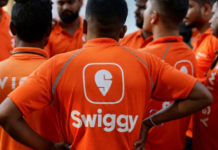
India’s leading beauty and fashion e-commerce platform, Nykaa, has made an important announcement that could redefine its growth trajectory. The company revealed its strategic vision to achieve EBITDA break-even in its fashion vertical by FY26, signaling a significant turning point in its journey from a digital beauty startup to a diversified retail powerhouse. This announcement was made during its Annual Investor Day, where the company laid out clear financial and operational goals across all segments.
Nykaa’s fashion division, which has often been a drag on overall profitability due to high competition and operational costs, is finally turning the corner. According to FSN E-Commerce Ventures, the parent company of Nykaa, the goal is not just to break even but to achieve mid-single-digit EBITDA margins by FY28 and eventually reach a steady-state EBITDA margin of 10%. This move reflects the company’s growing confidence in its business model, operational efficiency, and its ability to navigate the complex Indian fashion retail landscape.
Financial Snapshot and Growth Forecast
In FY25, Nykaa’s fashion business recorded an EBITDA margin of –8.3%, which indicates the segment was still operating at a loss. However, what is encouraging is the rapid pace at which the company aims to close this gap. The fashion segment has been identified as a high-potential area, and Nykaa has committed to aggressively expanding it. The company stated its goal of achieving 3x to 4x growth in fashion net sales value over the next five years. This bold projection underlines how central the fashion business is to Nykaa’s future growth strategy.
The Gross Merchandise Value (GMV) for Nykaa Fashion stood at ₹3,800 crore in FY25, demonstrating strong demand despite macroeconomic challenges. Nykaa believes this number will only grow with the expansion of its private label brands and better logistics capabilities. One of the core drivers of this growth is the House of Nykaa, a group of private-label brands that includes Nykd, Twenty Dresses, and RSVP. These brands alone contributed ₹2,100 crore to GMV in FY25 and are expected to reach ₹6,000 crore by FY30, growing at a robust 30% compound annual growth rate (CAGR).
Logistics, Retail Footprint, and Customer Experience
To support this level of growth, Nykaa has been heavily investing in logistics, warehousing, and physical retail stores. One of its most exciting recent innovations is the launch of “Nykaa Now”, a quick-commerce service that promises delivery of products within 30 to 120 minutes in seven major Indian cities. The company aims to expand this service to more urban markets soon. Currently, 80% of the orders in the top 12 cities are being delivered either the same day or the next, and even in smaller cities, 70% of orders are completed within one to two days.
Nykaa has also significantly increased its offline retail footprint, operating 237 physical stores across 79 cities as of FY25. This is a sharp jump from just a few years ago and forms a key part of its omni-channel strategy. The company understands that Indian consumers are evolving—they browse online but often prefer the tactile experience of physical stores. By merging the best of both online and offline retail, Nykaa is creating a seamless, immersive shopping experience that encourages brand loyalty and higher conversion rates.
Broker Sentiment and Investor Confidence
The financial community has responded positively to Nykaa’s FY26 break-even goal. Brokerage firm CLSA has noted that the company’s detailed roadmap could result in earnings upgrades, especially if the fashion segment becomes profitable ahead of expectations. They believe a 10% EBITDA margin in the fashion vertical is achievable in the steady state, giving Nykaa a strong foundation for sustainable profitability.
Other major firms like JM Financial, Nomura, and Nuvama have also shared their views. JM Financial has upgraded Nykaa’s outlook, citing that the break-even timeline is one year earlier than previously projected, which enhances the overall valuation potential. Nomura, while maintaining a “Neutral” stance, acknowledged that hitting this break-even target in FY26 shows strong execution capabilities. Meanwhile, Nuvama retained its “Buy” rating and mentioned that lower losses in fashion and B2B segments are improving overall profitability. All these reviews collectively indicate that Nykaa is regaining investor confidence after facing market skepticism during the post-IPO period.
Strategic Importance of Private Label Expansion
One of the most powerful levers for Nykaa’s profitability is its private label expansion. Brands under the “House of Nykaa” allow the company to enjoy higher margins, better brand control, and increased customer loyalty. Unlike third-party product sales where the company gets only a cut, private labels offer complete ownership—from product creation to marketing and final sale. This means Nykaa can experiment more with design, pricing, and supply chain, allowing for stronger margins and quicker innovation cycles.
The company expects this group of private labels to become a ₹6,000 crore GMV business by FY30, marking a major shift from dependence on external brands. With a 30% CAGR, private labels are likely to drive the next wave of growth for Nykaa Fashion.
Challenges and Competition in Fashion
Despite this promising outlook, Nykaa faces some real challenges. The Indian online fashion market is highly competitive, with strong players like Myntra, Ajio, Tata Cliq, and global entrants like Zara and H&M. These brands have deep pockets and established supply chains, which makes customer acquisition and retention more expensive.
Additionally, economic headwinds and fluctuations in discretionary spending can impact growth in fashion sales. Unlike beauty products, which are repeat-purchase and have higher brand loyalty, fashion trends are seasonal and depend on external factors like climate, events, and changing style preferences. Moreover, execution risk remains a concern—scaling quick commerce, maintaining product quality, and managing logistics in a cost-effective way are all vital for long-term success.
What This Means for Customers and Investors
For everyday customers, Nykaa’s expansion into quick commerce and physical retail means a faster, more personalized shopping experience. They’ll get access to wider choices, exclusive private-label products, and the convenience of faster deliveries, especially in fashion, which is often driven by impulse buying. As more Nykaa fashion stores open and Nykaa Now expands to new cities, shopping becomes faster and more fulfilling.
For investors, the move to achieve fashion EBITDA break-even in FY26 is a clear signal of financial discipline and long-term thinking. It suggests that Nykaa is no longer just a high-growth startup burning cash, but is evolving into a mature, multi-category retail company with a solid business model. The success of private labels, quick commerce, and increased offline presence creates multiple revenue streams, reduces risk, and enhances value.
Nykaa’s announcement to reach fashion EBITDA break-even by FY26 marks the beginning of a new chapter in its growth story. With detailed planning, a strong investor response, and smart execution strategies in place, the company is well-positioned to transform its fashion business from a loss-making vertical into a profit engine. While competition remains fierce and execution will be critical, Nykaa’s multi-pronged approach—spanning private-label dominance, logistics improvements, quick commerce innovations, and retail expansion—provides a solid blueprint for achieving its financial targets.
As India’s fashion and beauty retail market continues to evolve, Nykaa’s ability to adapt and lead could make it not just a pioneer, but a long-term winner in the e-commerce and fashion ecosystem.


































